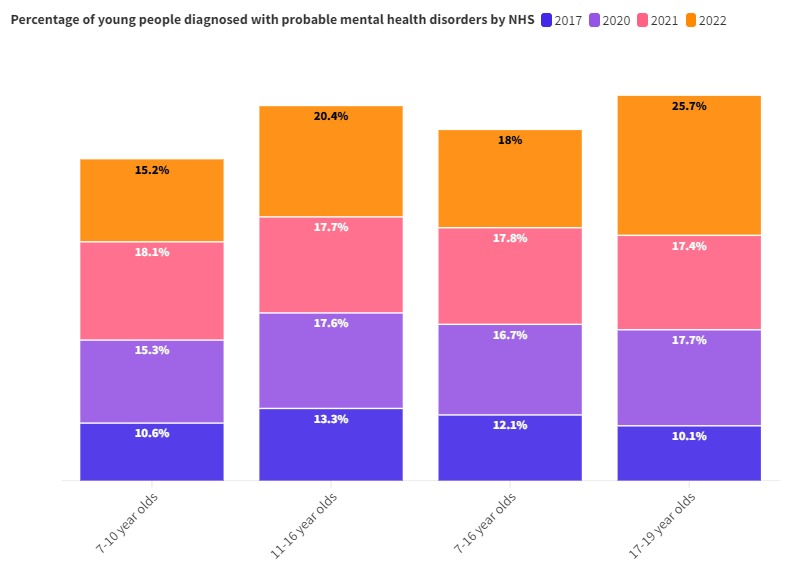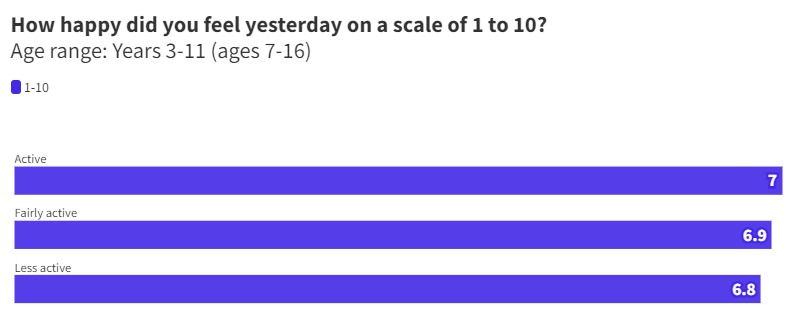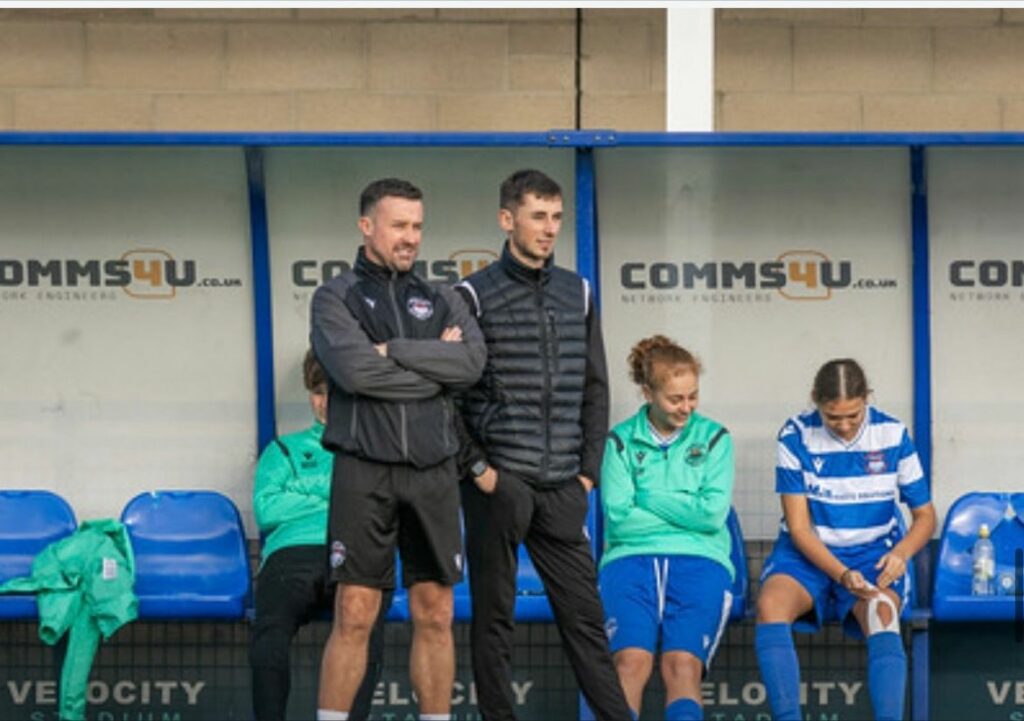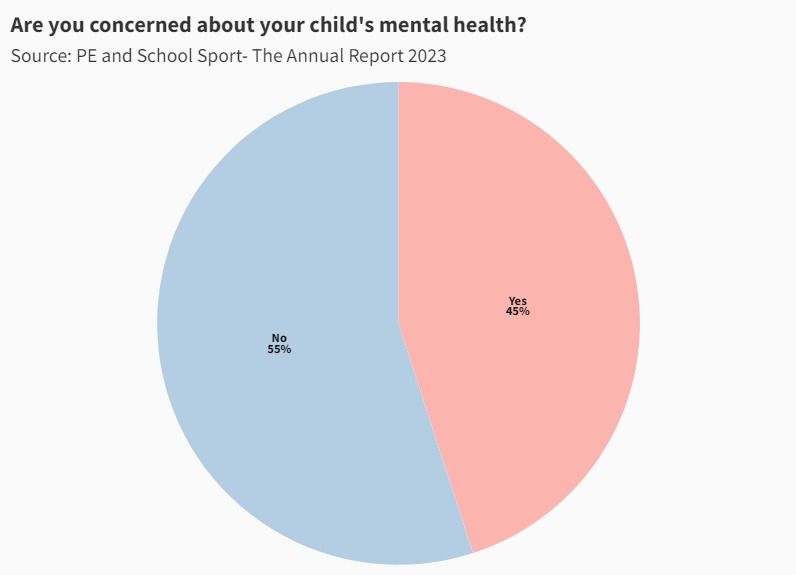How sport can improve children’s mental health
As it stands, there is a mental health crisis in the UK.
Less than six months ago, The Guardian released this article, where NHS bosses claim mental healthcare in England has become “a national emergency”.
People in the midst of a mental health crisis are spending up to 50 hours in A&E because of the limited NHS support outside hospitals.
In relation to young people, these figures from the NHS don’t make for great viewing, with an increase shown in every age category for young people diagnosed with mental health disorders.
 UK Chancellor of the Exchequer Jeremy Hunt had previously been vocal about improving mental health services, stating in 2017 that the NHS needs to ‘be better’ at dealing with crisis patients. However, the problem only seem to be getting worse.
UK Chancellor of the Exchequer Jeremy Hunt had previously been vocal about improving mental health services, stating in 2017 that the NHS needs to ‘be better’ at dealing with crisis patients. However, the problem only seem to be getting worse.
Awareness
There’s a lot of organisations and charities that do great work to raise awareness for young people and mental health. One of these organisations is YoungMinds.
We stand with our Activists. We stand with the 15,000 people who signed the letter. We stand with the young people at the centre of the mental health emergency.
To every young person not getting the support you need: we won’t give up on you. pic.twitter.com/nD4A13eEsT
— YoungMinds (@YoungMindsUK) March 6, 2024
YoungMinds wrote an open letter to Jeremy Hunt back in January talking about the lack of support for young people when dealing with mental health problems.
Young people and sport
Below is data from Sport England and the Youth Sport Trust which shows that active children feel happier in themselves, with 45% of parents concerned for their child’s mental health, highlighting the worrying nature of this mental health crisis and how exercise can boost the mood of children.

Exercise improves mental health
With the NHS currently overwhelmed, exercise can help improve mental health without specialist assistance, especially in younger people.
The Mental Health Foundation have made a guide detailing how to look after your mental health using exercise and sports, something sports teachers and coaches are encouraging young people to do.
Connor Walton is a sports coach who works with the Oxfordshire Skills Acquisition Academy, as well as Oxford City Football Club as the Assistant Manager for women’s first team.

He spoke about the challenges he has faced when teaching younger kids and the links between sports and mental health.
Connor said: “In the last three to four years, mental health has become a massive thing.
“The kids come from so many different backgrounds, and being able to access sport is a huge thing.
“During lockdown, you had Joe Wicks doing online PE lessons, but there were kids at home who couldn’t access it.
“Some people come from poor backgrounds and some people get everything given to them.”
Impact of social media and public figures
Connor believes social media has contributed to the downfall in kids taking part in physical activity.
“What I’ve noticed is that kids five or six years ago used to love doing sport because the technology wasn’t there, whereas now, most entertainment comes through either TikTok or Snapchat.
But, there’s one man who Connor credits for his work to improve the mental health of young people. Someone who coincidently gets a lot of criticism on social media.
“I think Marcus Rashford’s books are brilliant”, said Connor.
“When the kids get to an end of a chapter, they get to ask questions about themselves, and I think it’s a huge thing.
“I’ve tried to bring it into teaching with my Year Six class.
“They’ve got such a big pressure on them because of SATS at the end of the year, so a lot of my PE lessons are more like life lessons instead of actual PE lessons.
“I make things fun and engaging for the kids, but try to give them responsibility and prepare them for secondary school too.”
Creating a healthy environment
Luke Stone is the Academy Education Coordinator & Coach at West Ham United. He encourages face-to-face communication between teammates and physical activities outside of football.
“When we’re travelling up, we play games like Among Us on our phones. But in the evening, we’ll do no phones at dinner and no phones when we’re doing activities afterwards. This allows the boys to properly get to know each other.
“By the time the kids are 15 or 16, we encourage them to do The Duke of Edinburgh Award.
It’s right out of their comfort zone because they’re camping in the Lake District, hundreds of miles away from home with no phone signal, but it’s all done in a safe environment.
“They’re getting that experience of standing on their own two feet, getting to know their teammates and having some fun.”
Communication is key
As mentioned in many mental health campaigns, talking always helps when addressing internal problems.
Someone is the sports sector who has encouraged communication to address the mental health crisis in young people is Academy Psychologist at Stoke City, Samuel Stewart.

“I did a workshop at Stoke with the under 12’s about communication,” said Samuel.
“I talked to them about some examples of professional footballers who had mental health troubles, and how important it was they communicated those troubles.
“After the workshop, I asked everyone to write on a post-it note what they’ve learned.
“There were about 15 responses that said something along the lines of either: ‘I learned that it’s okay to speak up when you’re struggling’, ‘you mustn’t keep things bottled up‘, or ‘if something’s really bugging you, you should go and ask for help.’
“Going back to my office and reading those notes was a moment I’ll always remember.”
Samuel also spoke about the need to create an environment where people can freely talk about their mental health.
“The barriers are not just specific to football and sports. I think that the barriers are specific to all walks of life.
“One of the most important parts of sports psychology work, or psychology work in general, is that relationship you can build with individuals. People must feel as though they can be vulnerable with you.
“You have to come across as someone who is willing to try and understand the individual while they experience their own emotions.
“With the kids at Stoke, it may be something they’re going through in sport or outside sport. And there’s more to that than numbers on a spreadsheet, or goals in the back of the net.
“Those things aren’t always controllable, so I advise the kids to focus on the things that are more controllable. It’s largely about education from the top all the way down.”
Lessons to learn
So from the words of a school teacher, academy coach and sports psychologist, the key to addressing mental health issues with children in sports is to learn how to effectively communicate with them ,teach them about the most effective ways to view themselves, and acceptance that it’s ok not to be ok, meaning talking about how you feel is perfectly fine and the way to go.
